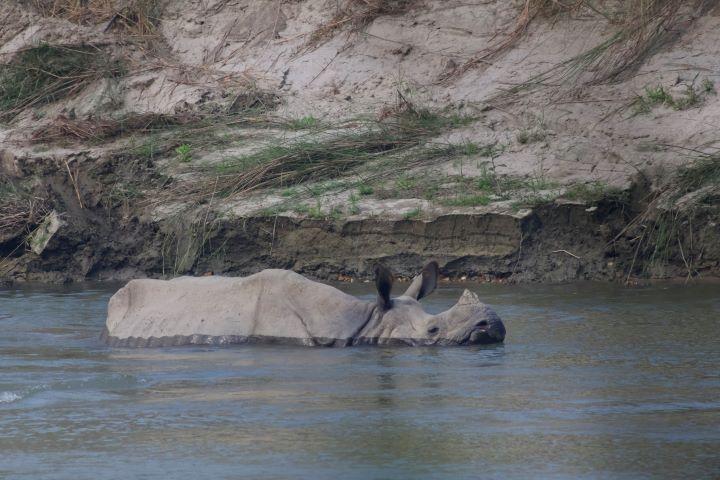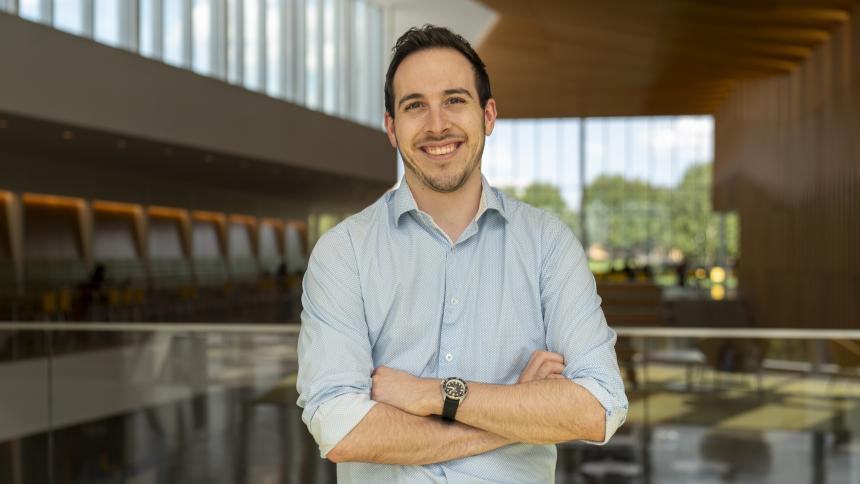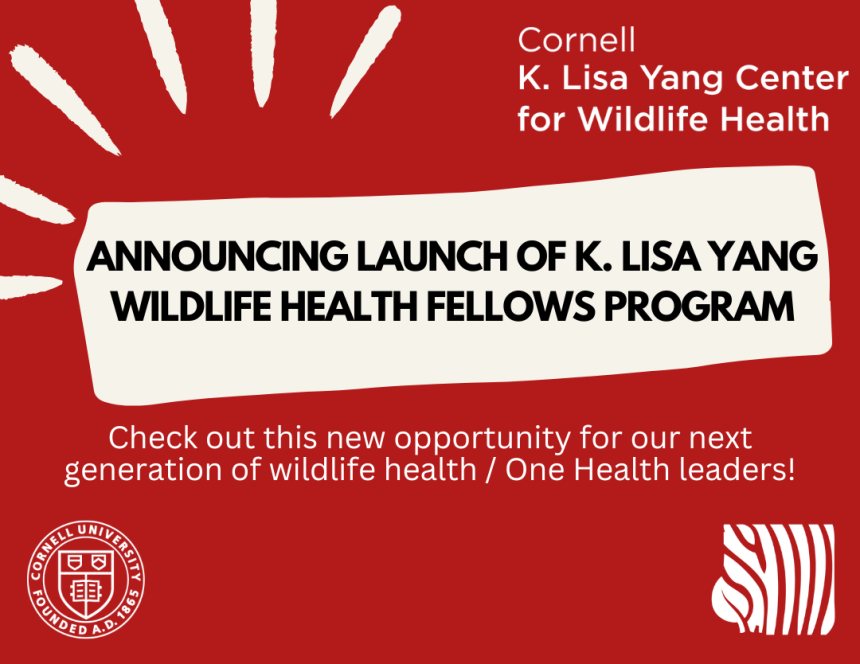In the News

April 23, 2025
by
Carmen Smith
It was a misty morning on the outskirts of Chitwan National Park in Nepal, and I awoke after a night of little sleep broken by the sounds of dogs barking and roosters crowing....

April 10, 2025
Moving endangered rhinos to new areas is a vital part of their conservation. War-torn helicopters from the Vietnam War are airlifting the creatures upside down to safety based on research pioneered by Cornell researchers.

April 09, 2025
The Fossil Rim Wildlife Center plays an important role in efforts to save wildlife species from extinction. I was fortunate enough to travel to Glen Rose, Texas for a preceptorship to experience these conservation efforts firsthand....

Announcement
September 17, 2024
After an international search, Carmen R. Smith ’17, DVM ’21, has been selected as the inaugural Cornell K. Lisa Yang Center for Wildlife Health Free-Ranging Wildlife Pathology Fellow, who will focus on unraveling the causes and conditions responsible for unexplained wildlife mortality events around the world.

Podcast
August 22, 2024
Tigers, leopards and now one-horned rhinos. Dr. Martin Gilbert studies them all. As a wildlife veterinarian and epidemiologist at Cornell, Dr. Gilbert has investigated infectious diseases and mysterious mass die-offs all over Asia. Check out this latest podcast featuring his work.

Announcement
May 15, 2024
Check out this new opportunity for our next generation of wildlife health / One Health leaders!

Video
April 12, 2024
In this eCornell keynote presentation, Dr. Martin Gilbert, Helen Lee, and Laura Bernert from the Cornell K. Lisa Yang Center for Wildlife Health share their fieldwork experiences in Asia and help illustrate how the health of wildlife and our own health and well-being are inextricably linked.

February 14, 2024
Cornell University’s College of Veterinary Medicine announced a gift of $35 million to support the Cornell Wildlife Health Center, which has been renamed to the Cornell K. Lisa Yang Center for Wildlife Health in recognition of the scale of commitment to planetary health from the donor, Lisa Yang.

January 30, 2024
A transformational gift from philanthropist and Cornell alumna K. Lisa Yang ’74 will endow and rename the Cornell Wildlife Health Center as the Cornell K. Lisa Yang Center for Wildlife Health at the College of Veterinary Medicine.

December 12, 2023
Renowned wildlife veterinarian Dr. Markus Hofmeyr visited Cornell University to share his perspectives on sustainable conservation, focusing on challenges and successes around wildlife reintroduction and rewilding.
